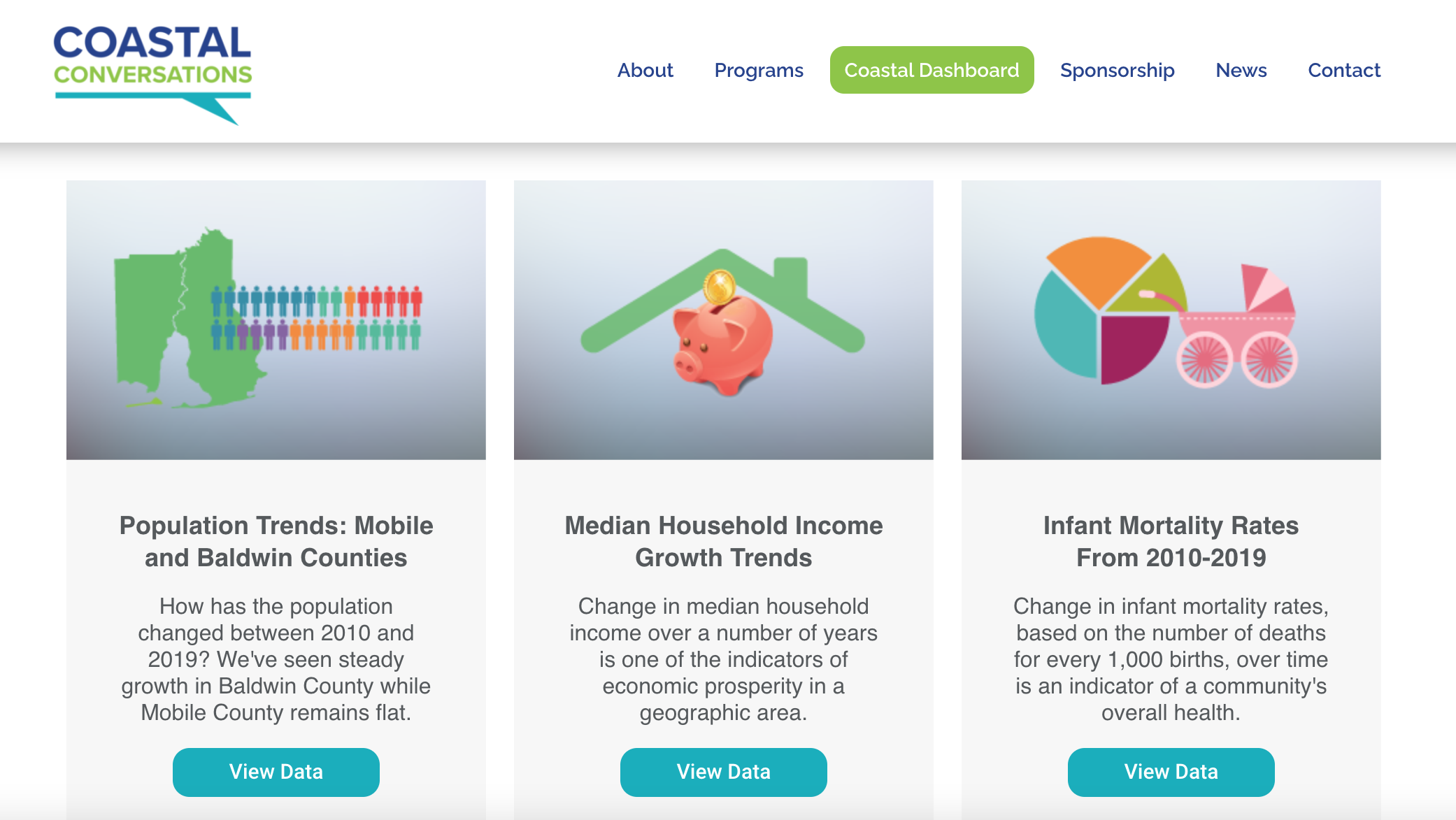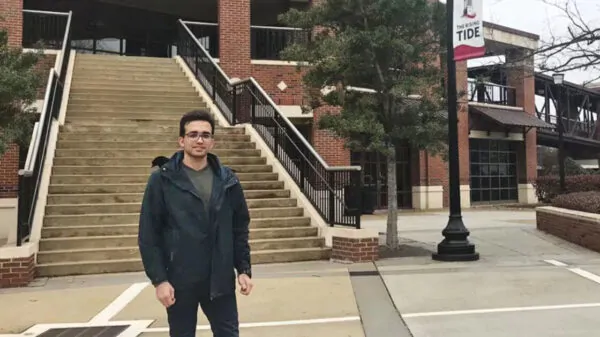A new online resource lays out the data on some of the biggest issues in the state’s coastal communities, and it’s free and available to the public.
The Coastal Dashboard tracks data in 17 key areas, including childhood reading levels, infant mortality, water and air quality, labor force participation, homeownership and household income.
“The quality of the information that all of us will realize from this dashboard will make a very big difference in the quality of life in the coastal area,” said Alvin Williams, interim dean of the university’s Mitchell College of Business, during a presentation on the new program last month.
The data is compiled from an array of federal and state agencies that gather it and will be updated regularly. What makes the dashboard unique is that it is all in one place and available to the public for free, said Michael Chambers, the program’s executive director.
Chambers said such data allows for the “ruthless assessment of your subprime circumstances” that any problem-solving effort should begin with. It can be used by educators, community leaders, nonprofits, grant writers, journalists, researchers and anyone who wants to explore the statistics on a given issue.
Having local data presented in an easy-to-understand format, with color-coded graphs and charts that can be delved deeper into for more specific information, provides an important starting point for anyone seeking to get an accurate picture of how the community is performing, Chambers said.
For instance, in the section on academic proficiency in reading and English, the data shows a downward trend from 2015-2019 for high schools in both counties. In the section on high school graduation rates, though, the data shows the rates in both counties rising since 2015.
“There are probably a number of conclusions that can be drawn from that,” Chambers said. “I’m not sure which one is the correct one, but it’s certainly something that we find interesting.”
Another section lists bodies of water classified as troubled, meaning they fail to meet federal water quality standards. The data set shows that Mobile County has 24 troubled waters and four with multiple pollutants. Baldwin County has 25, six of which have multiple pollutants. Cold Creek has been classified as troubled for 24 years, Mobile’s longest. Fish River and Bon Secour Bay top Baldwin’s list at 22 years each.
Data like this can raise critical questions that can guide communities to identification of problems and then solutions, Chambers said.
The areas of focus were determined by speaking to community members across a wide range of fields. Chambers called the dashboard a living document to which more areas of focus can be added. He welcomes recommendations.
The site had several hundred visitors within its first week, which Chambers said was a significant amount of traffic.
The dashboard was created by Coastal Conversations in partnership with the South Alabama Center for Business Analytics, Real Estate, and Economic Development at USA. Coastal Conversations is a project that brings world-class experts to the region to speak and is working on a quality-of-life survey. It is run by the Coastal Alabama Partnership, an association of people in business, local chambers of commerce and government that works to empower and unify business and political leaders to improve the region’s quality of life.












































